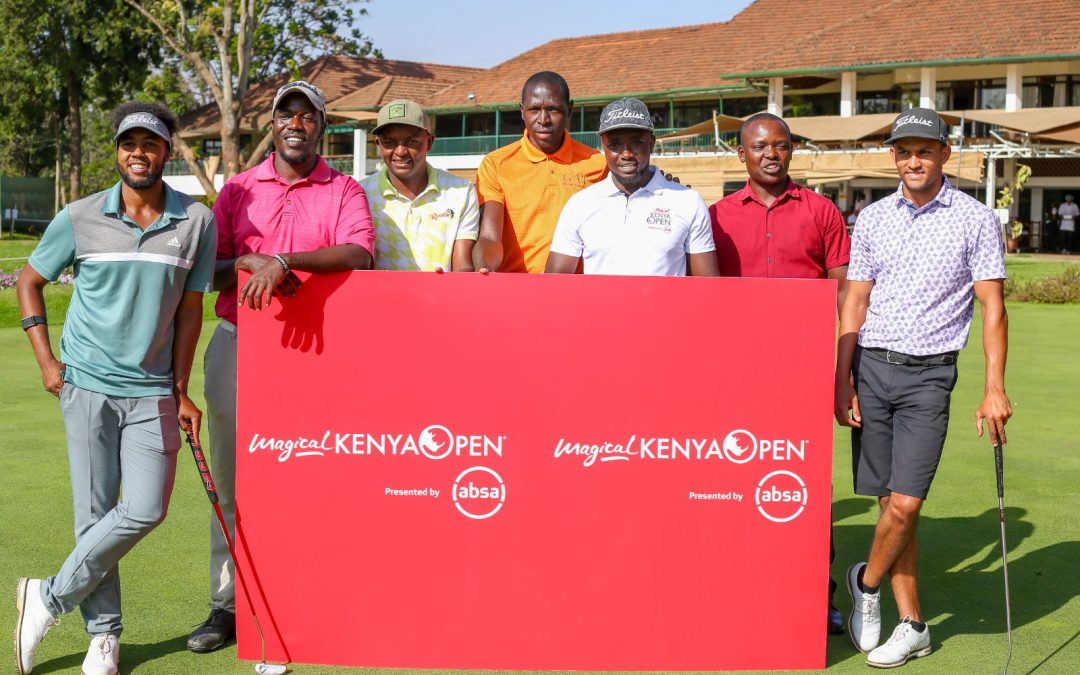Will a Kenyan ever win The Magical Kenya Open (MKO)? The 2023 edition has just concluded. Mutahi Kibugu was the only Kenyan golfer to make the cut and finished tied 65 at one under. We cannot talk about the performance of the Kenyan golfers at MKO without talking about the support they receive.This article challenges the Kenyan sponsorship model for pro golfers and sports in general.
The Corporate Role
Every year corporates shower the players who qualify for MKO with cash and cash incentives a week before the tournament. It’s obviously a prime marketing opportunity but it bears little fruits for the corporates and players. Sure the financial boost is great for the players. Usually each player banks between KSh 300,000 – KSh 800,000 from these rewards. The corporates get to put their brands out there on the international audience. But is there a long term gain for the corporates and how does this help the player’s performance?
It can be argued that these actions have a negative effect to the chances of the players performing well. Why? For one, most of these players are not used to such media attention. They have not had such kind of support all season. And when you just dump prosperity to someone who’s not used to it, it only ends up adding pressure or a false sense of achievement/entitlement instead of focus. One would even go ahead and argue for some, this becomes their biggest payday. They get to handle more money than they’re used and that can mess one’s mind.
It reminds me of a meme that on one side shows an athlete competing in an empty stadium. On the other side showing a stadium full as they celebrate his accomplishment. As a country we like celebrating success but refuse to invest in the process of achieving that success.
Challenges Pros in Kenya Face
A typical pro struggles financially to play even the five Safari Tour events. The average cost for a pro per event is roughly KSh 30,000. If they have to travel for the tournament that costs shoots to an average of KSh 50,000. This does not account for the opportunity cost if they miss the cut or don’t finish high enough to recoup their investment.
Paradigm Shift
Corporates and individuals who want to see the sport grow need to rethink the Kenyan sponsorship model. Instead of them waiting to see who qualifies for MKO, they need to invest in these players from the beginning of the season. They need to peg their sponsorship on some measurable objectives and/or performance goals.
One would ask, how then will the sponsors get value for their money and how does this help the pros performance? For one, the corporate will be able to use the pro in their marketing activities throughout the year and not for just one week without necessarily needing to spend a lot more.
Secondly, the pros will be able to focus more on golf instead of survival. When they know they have a support system they won’t have to worry about how to put food on the tables for their families. Their focus will be sharpening their games. I am also sure, they’ll look for more opportunities outside the borders to represent the brand that sponsors them and gain more experience which will make them better golfers.
Another way these corporates can elevate the game is by sponsoring golf tournaments for the pros and ensuring there’s adequate prize money. They can use this opportunity to pick pros who match their brand image and values. Such pros would them be signed and committed to be brand ambassadors for a prescribed period. There are more than 15 companies in Kenya which invest in golf in one way or another. If they can be shown the value of investing in the game. If each company sponsors one big tournament for the pros they can add up to more than 15 events in a year. This would motivate the pros to constantly work on their game and thus improve their skill and performance.
Conclusion
The Kenyan sponsorship model needs to change from one of simply helping to a transactional relationship for us to get multiple magical Mutahi moments in future MKOs. Everyone needs to do their part to complete the package and produce desired results. The sponsors need to invest in the process as opposed to rewardin outcome. Some corporates are doing this with great success at the junior level by the likes of Safaricom and NCBA. But preparing juniors without setting up a professional platform for them to grow into is a futile effort.
On the hand, pros need to do some soul searching and figure the value they can add to the corporates that choose to sponsor/invest in the game. No one should help for the sake of helping, not at the professional level, that has been done for donkey years and we know it doesn’t work!



Thanks for the article you need to talk about Moral Integrity and discipline among the pros and two some of us should enroll for courses to advance
Thank you for your comment. I will definitely tackle these topics in the coming days. Shukran!